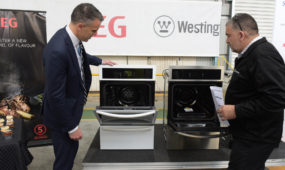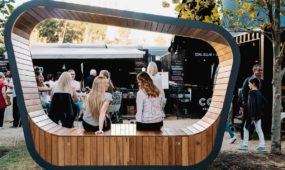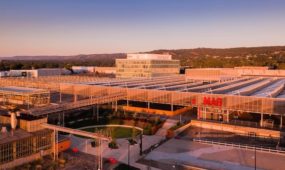Private electricity grids fuelled by renewable energy the future for communities
Manufacturing
CONNECTING new housing estates to their own private electricity grids fuelled by renewable energy is the cornerstone of ZEN Energy’s plan to put power back in the hands of consumers.

Sign up to receive notifications about new stories in this category.
Thank you for subscribing to story notifications.
The company has launched ZEN Communities – an “end to end” service from power generation through to networks and retailing to deliver low cost renewable energy direct to entire communities.
ZEN Energy Director of Innovation Richard Turner founded the company in South Australia 11 years ago and has overseen its evolution from solar panel installer to Australia’s first dedicated “community energy provider”.
Mr Turner said ZEN had teamed up with Greensmith Energy Management systems, which last year delivered a third of the USA’s energy storage market including the largest system in the world – big enough to power a regional township.
“Suddenly we’ve got relatively new technology that has come down dramatically in cost to the point where we can build a renewable power station at a township level which takes the form of shipping container sized batteries – you might have five or six or 10 of these in a row,” Mr Turner said.
“It’s almost going back to the future – back 100 years to the old township-based power supply.
South Australia is cementing itself as a world leader in green energy as companies begin cracking the code to make renewables commercially viable.
Nearly a quarter of houses in South Australia have installed rooftop solar panels, making it one of the highest penetration rates in the world. It is also the largest producer of wind energy in Australia – the state’s 1.5GW of wind energy represents almost half of the country’s capability.
South Australia made headlines around the world when it was announced that the state – 'a place with the population of West Virginia' – had been powered by 100% renewable energy for an entire working day.
Mr Turner said ZEN’s community projects could range in size from single homes to townships up to 20,000 properties.
He said solar, wind, bio-mass, bio-waste or hydro power could be generated within the community and moved around the mini-grid to where it was needed or stored for later use.
“It’s all about optomising the best natural mix of resources in an area that we can harness to produce the lowest cost power then we balance that off with energy storage,” he said.
ZEN’s first pilot project will begin next year at a housing development in Melbourne.
Mr Turner said the communities would be much easier to set up in green field sites where there were no connections to existing power networks.
“We have to get to these new developments before they turn dirt because we have to get a distribution exemption to build a private network,” he said.
“There’s about 100,000 homes already in the pipeline from developers who have approached us wanting to use this model for new housing developments.
“So our aim is to get this community model right and then potentially take them to other countries. We’ve got that many inquiries already from around the world it’s ridiculous but we’ve still got a lot of work to do in Australia with our pilots.”
“Within a couple of years you’ll see them in full swing probably all around the country.”
ZEN appointed high-profile Australian economist and national climate change review author Ross Garnaut as its chairman last month.
“He quite clearly understands where energy markets are heading and as a result of that he’s become the chairman of ZEN,” Mr Turner said of Professor Garnaut.
“We’ve got a very heavy hitting board and we’ve brought these people in to give us the leverage and the ability to work with the utilities and develop this new energy sector. To make this a reality you’ve got to bring the right people in.
“Ross Garnaut sought us out, he said there’s a real opportunity to do this community power and ZEN is best placed to make this a reality.”
Mr Turner said South Australia was perfectly placed to be at the forefront of renewable energy advancements.
“Adelaide’s a smaller city, we’ve got a very entrepreneurial population – we’ve just had to be to survive – we also have the best renewable energy resources in the world in terms of solar and wind and we also have very high power prices because we are on the end of the eastern power grid. All the elements add up to be the perfect storm here in South Australia to develop these sorts of technologies.”
Jump to next article



